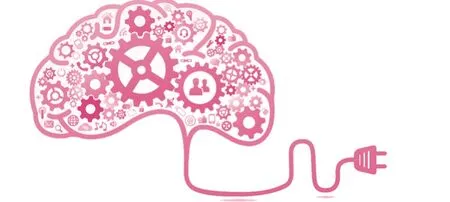Trump Wasn’t Always So Linguistically Challenged
2018-01-04By
By
Trump Wasn’t Always So Linguistically Challenged
BySharon Begley
It was the kind of utterance that makes professional transcribers question their career choice:
“… there is no collusion between certainly myself and my campaign, but I can always speak for myself—and the Russians, zero.”
[2] When President Trump offered that response to a question at a press conference, it was the latest example of his tortured syntax, mid-thought changes of subject, and apparent trouble formulating complete sentences, let alone a coherent paragraph, in unscripted speech.
[3] He was not always so linguistically challenged.
[4] STAT reviewed decades of Trump’s on-air interviews and compared them to Q&A sessions since his inauguration. The differences are striking and unmistakable.
[5] Research has shown that changes in speaking style can result from cognitive decline. STAT therefore asked experts in neurolinguistics and cognitive assessment, as well as psychologists and psychiatrists, to compare Trump’s speech from decades ago to that in 2017; they all agreed there had been a deterioration, and some said it could re fl ect changes in the health of Trump’s brain.
[6] In interviews Trump gave in the 1980s and 1990s, he spoke articulately,used sophisticated vocabulary, inserted dependent clauses into his sentences without losing his train of thought, and strung together sentences into a polished paragraph, which—and this is no mean feat—would have scanned just fine in print. This was so even when reporters asked tough questions about,for instance, his divorce, his brush with bankruptcy, and why he doesn’t build housing for working-class Americans.
[7] Trump fluently peppered his answers with words and phrases such as“subsided,” “inclination,” “discredited,”“sparring session,” and “a certain innate intelligence.” He tossed off (speak out naturally) well-turned sentences such as,“It could have been a contentious ((ccoonn--troversial) route,” and, “These are the only casinos in the United States that are so rated.” He even offered thoughtful, articulate aphorisms: “If you get into what’s missing, you don’t appreci-ate what you have,” and, “Adversity is a very funny thing.”
[8] Now, Trump’s vocabulary is simpler. He repeats himself over and over,and lurches from one subject to an unrelated one, as in this answer during an interview with the Associated Press:
“People want the border wall. My base definitely wants the border wall,my base really wants it—you’ve been to many of the rallies. OK, the thing they want more than anything is the wall. My base, which is a big base; I think my base is 45 percent. You know, it’s funny.The Democrats, they have a big advantage in the Electoral College. Big, big,big advantage. … The Electoral College is very dif fi cult for a Republican to win,and I will tell you, the people want to see it. They want to see the wall.”
[9] For decades, studies have found that deterioration in the fluency, complexity, and vocabulary level of spontaneous speech can indicate slipping brain function due to normal aging or neurodegenerative disease. STAT and the experts therefore considered only unscripted utterances, not planned speeches and statements, since only the former tap the neural networks that offer a window into brain function.
[10] The experts noted clear changes from Trump’s unscripted answers 30 years ago to those in 2017, in some cases stark enough to raise questions about his brain health. They noted, however,that the same sort of linguistic decline can also re fl ect stress, frustration, anger,or just plain fatigue.
[11] The change in linguistic facility could be strategic; maybe Trump thinks his supporters like to hear him speak simply and with more passion than proper syntax. But linguistic decline is also obvious in two interviews with David Letterman, in 1988 and 2013,presumably with much the same kind of audience. In the first, Trump threw around words such as “aesthetically”and “precarious,” and used long, complex sentences. In the second, he used simpler speech patterns, few polysyllabic words, and noticeably more fi llers such as “uh” and “I mean.”
[12] The reason linguistic and cognitive decline often go hand in hand, studies show, is that fluency reflects the performance of the brain’s prefrontal cortex, the seat of higher-order cognitive functions such as working memory,judgment, understanding, and planning, as well as the temporal lobe,which searches for and retrieves the right words from memory. Neurologists therefore use tests of verbal fluency,and especially how it has changed over time, to assess cognitive status.
[13] Those tests ask, for instance, how many words beginning with W a patient can list, and how many breeds of dogs he can name, rather than have patients speak spontaneously. The latter “is too hard to score,” said neuropsychologist Sterling Johnson, of the University of Wisconsin, who studies brain function in Alzheimer’s disease. “But everyday speech is de fi nitely a way of measuring cognitive decline. If people are noticing[a change in Trump’s language agility],that’s meaningful.”
[14] Although neither Johnson nor other experts STAT consulted said the apparent loss of linguistic fluency was unambiguous evidence of mental decline, most thought something was going on.
[15] John Montgomery, a psychologist in New York City and adjunct professor at New York University, said “it’s hard to say de fi nitively without rigorous testing” of Trump’s speaking patterns,“but I think it’s pretty safe to say that Trump has had signi fi cant cognitive decline over the years.”
[16] No one observing Trump from afar, though, can tell whether that’s “an indication of dementia, of normal cognitive decline that many people experience as they age, or whether it’s due to other factors” such as stress and emotional upheaval, said Montgomery, who is not a Trump supporter.
[17] Even a Trump supporter saw and heard striking differences between interviews from the 1980s and 1990s and those of 2017, however. “I can see what people are responding to,” said Dr.Robert Pyles, a psychiatrist in suburban Boston. He heard “a difference in tone and pace. … What I did not detect was any gaps in mentation or meaning. I don’t see any clear evidence of neurological or cognitive dysfunction.”
[18] Johnson cautioned that language can deteriorate for other reasons. “His language dif fi culties could be due to the immense pressure he’s under, or to annoyance that things aren’t going right and that there are all these scandals,” he said. “It could also be due to a neurodegenerative disease or the normal cognitive decline that comes with aging.”Trump is 71.
[19] Northwestern University psychology professor Dan McAdams, a critic of Trump who has inferred his psychological makeup from his public behavior, said any cognitive decline in the president might re fl ect normal aging and not dementia. “Research shows that virtually nobody is as sharp at age 70 as they were at age 40,” he said. “A wide range of cognitive functions, including verbal fluency, begin to decline long before we hit retirement age. So, no surprise here.”

[20] Researchers have used neurolinguistics analysis of past presidents to detect, retrospectively, early Alzheimer’s disease. In a famous 2015 study, scientists at Arizona State University evaluated how Presidents Ronald Reagan and George H.W.Bush spoke at their news conferences.Reagan’s speech was riddled with indefinite nouns (something, anything), “low imageability” verbs (have, go, get),incomplete sentences, limited vocabulary, simple grammar, and fi llers (well,basically, um, ah, so)—all characteristic of cognitive problems. That suggested Reagan’s brain was slipping just a few years into his 1981-1989 tenure; that decline continued. He was diagnosed with Alzheimer’s disease in 1994. Bush showed no linguistic deterioration; he remained mentally sharp throughout his 1989-1993 tenure and beyond.
这种说话方式会让专业记录人员怀疑自己入错了行:
“……我和我的竞选团队之间当然没有共谋,但我说的话永远代表我自己——和俄罗斯人(也没有共谋),绝对没有。”
[2]上述为特朗普总统在某新闻发布会回答问题的最新实例。在即兴演讲中,特朗普句法扭曲,思维跑题,显然很难组织完整的句子,更别提连贯的段落了。
[3]然而他以前并非总这么词不达意。
[4]美国健康医疗专业媒体STAT回顾了特朗普数十年来的现场访谈,并将它们与他就职以来的问答环节相比较,发现两者确有差异,且差异明显。
[5]研究显示,说话方式>的变化可能源于认知能力的衰退。因此,STAT请来了神经语言学与认知评估领域的专家、心理学家和精神病学家,比较特朗普数十年前和2017年的语言变化。他们一致认为,特朗普的语言表达能力有所下降,其中一些人还表示,这可以反映出特朗普大脑健康状况的变化。
[6]在特朗普20世纪80年代和90年代接受的采访中,他口齿清楚,用词老到,语句间嵌套从句却思路连贯,所述句子串联在一起就大体形成了可直接出版的完整流畅的语篇——这可绝非易事。甚至在回答记者提出的诸如离婚、破产危机以及为何不为美国工薪阶层建造住房等刁钻问题时,他也能游刃有余。
[7]特朗普的回答妙语连珠,使用了subsided(平息)、inclination(倾向)、discredited(名誉扫地)、sparring session(对决)和a certain innate intelligence(某种天赋)等词汇及短语。他侃侃而谈,字字珠玑,如“此举措本该充满争议”“这些是美国仅有的经过等级认证的赌场”。他甚至娓娓道出引人深思的名言警句,如“与其纠结过去所失,不如珍惜当下拥有”和“逆境中焉知非福”。
[8]相较于以前的发言,特朗普现在的词汇更为简单。就像美联社的一次访谈中,他不厌其烦地重复相同的话,还动辄跑题。他是这样回答的:
“民众想要边界墙,我这边肯定也想要边界墙,我这边确实想要——你们都参加过多次集会了。好啊,他们最想要的就是这道墙。我这边,这边力量很大,我想我这边占到了45%。你们都知道的,很好啊。民主党在选举团中有很大优势,很大很大很大的优势……共和党很难赢的,我告诉你们,民众想要看到它。他们想要看到边界墙。”
[9]几十年的研究发现,即兴演讲的流畅性、复杂性和词汇水平的下降可能表明大脑机能正随年纪增长或神经退行性疾病而逐渐衰退。STAT和专家们的研究故而只针对脱稿发言,而非事先撰稿的演讲和讲话,因为只有前者触及神经网络系统,该系统是观察大脑功能的窗户。
[10]专家们注意到,和30年前相比,特朗普脱稿讲话的水平变化明显,甚至足以令人质疑他的脑部健康。不过,他们指出,同类的语言能力衰退问题也可能反映了演讲者的压力、沮丧、愤怒或单纯的疲惫。
[11]语言能力的变化或许出于战略考虑。或许特朗普认为,相对于规范的语法,他的支持者更希望他表达简单点,情感丰富些。但是在1988年和2013年大卫·莱特曼对他的两场访谈中,特朗普语言水平的衰退也很明显。两次采访所面对的观众群体大体一致。在前一次访谈中,特朗抛出了诸如aesthetically(审美观念上)和precarious(岌岌可危的)之类的大词,还使用复杂的长句。第二次访谈中,他的说法方式简单多了,几乎没用多音节词汇,“嗯”“我是说”等垫词的使用明显增加。
[12]为什么语言和认知水平的下降常常紧密相连呢?研究显示,语言的流畅性反映了大脑额前叶皮层细胞的机能。大脑额前叶是高级认知指挥中心,功能包括工作记忆、判断、理解和计划等;那里还是大脑颞叶的所在地,颞叶负责从记忆里搜索并找出正确的信息。因此,神经病学家会使用语言流畅测试,根据流利度的变化来评估患者的认知水平。
[13]比如,测试中,他们询问病人可以列出多少以W开头的单词,可以说出多少个狗的品种,而不是让病人自发说话。来自威斯康星大学、研究阿尔茨海默病对脑功能影响的神经心理学家斯特林·约翰逊表示,后者“很难评分,但日常话语毫无疑问是检测认知衰退的一个标准。如果人们意识到特朗普语言灵活性的变化,这就是有意义的”。
[14]虽然约翰逊和STAT咨询的其他专家并没有指出,语言流畅度的显著下降是智力下降的明确证据,但大部分人都认为肯定出问题了。
[15]纽约大学兼职教授、心理学家约翰·蒙哥马利表示,在对特朗普的言语模式“进行严谨测试之前,很难得出确凿结论。但我认为,可以相当肯定地说,这些年来特朗普的认知水平有明显衰退”。
[16]尽管如此,蒙哥马利教授认为,远距离观察并不能确定特朗普的语言变化究竟是“失智的征兆,即许多人在衰老过程中都会经历的正常认知衰退,还是由其他(诸如精神压力和剧烈情感波动等)因素所导致的”。教授本人并不支持特朗普。
[17]可即便是特朗普支持者也发现了他在上世纪80年代和90年代与2017年访谈间的惊人差异。“我能发现人们所说的差异。”波士顿郊区的精神病医生罗伯特·派尔斯博士说。他听出“(特朗普)语调和语速的不同……但我没有察觉其间任何精神状态或语义的差别。我并未发现任何指向神经或认知功能失调的清晰证据”。
[18]约翰逊提醒说,语言能力可能由于其他原因而退化。“他的语言困难可能是由于承受的巨大压力,或是为事情进展不顺和所有那些丑闻而烦恼。”他说,“这也可能是伴随衰老而产生的神经退行性疾病或正常的认知衰退现象。”特朗普71岁了。
[19]西北大学的心理学教授丹·麦克亚当斯是特朗普的批评者,他从特朗普的公开行为中推断出了特朗普的心理特质。麦克亚当斯说,总统的任何认知衰退都可能反映了正常衰老而非痴呆。“研究表明,事实上没有人在70岁时还能像在40岁时那样敏捷。”他说,“远在达到退休年龄之前,包括语言流畅性在内的大量认知功能就开始衰退了。所以,这并不奇怪。”[20]研究者曾采用神经语言学分析方法回测一些前任总统是否患有早期阿尔茨海默病。在2015年的一项著名研究中,亚利桑那州立大学的科学家分别评估了总统罗纳德·里根和总统乔治·赫伯特·沃克·布什在记者招待会上的讲话。里根的发言充满了模糊名词(something某些事,anything任何事)、“低意象性”动词(have有,go去,get得到)、不完整的句子、匮乏的词汇、简单的语法和大量垫词(well嗯,basically基本上,um呃,ah啊,so那么)——所有这些都是认知出现问题的典型特征。这也暗示了在1981—1989总统任期的前几年中,里根的大脑功能就开始逐渐衰退,这种衰退(在他卸任后)仍在持续。他在1994年被确诊患有阿尔茨海默病。布什则并未显现语言衰退征兆,他的大脑在1989—1993任期乃至之后一直保持敏捷清醒。

特朗普话语并非总是如此令人费解
文/莎朗·贝格利译/邓新荷秦婷审订/张琼
(译者单位:复旦大学奇境译坊)
